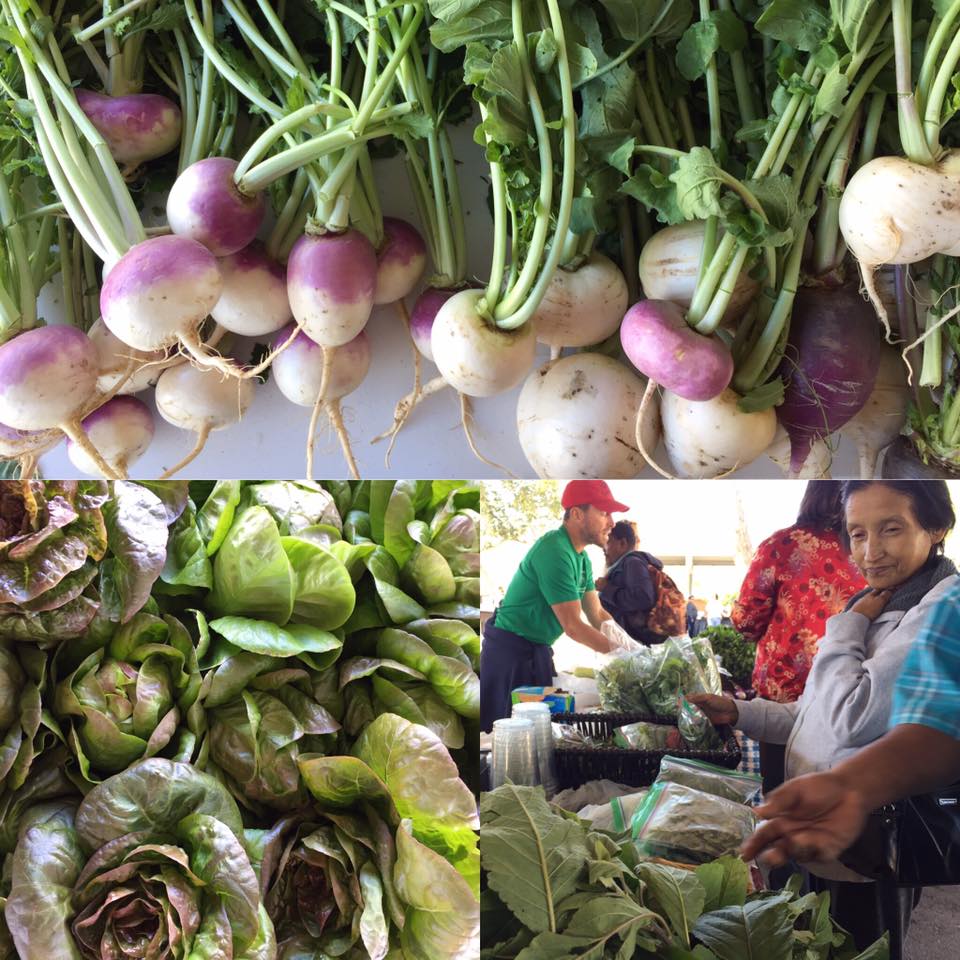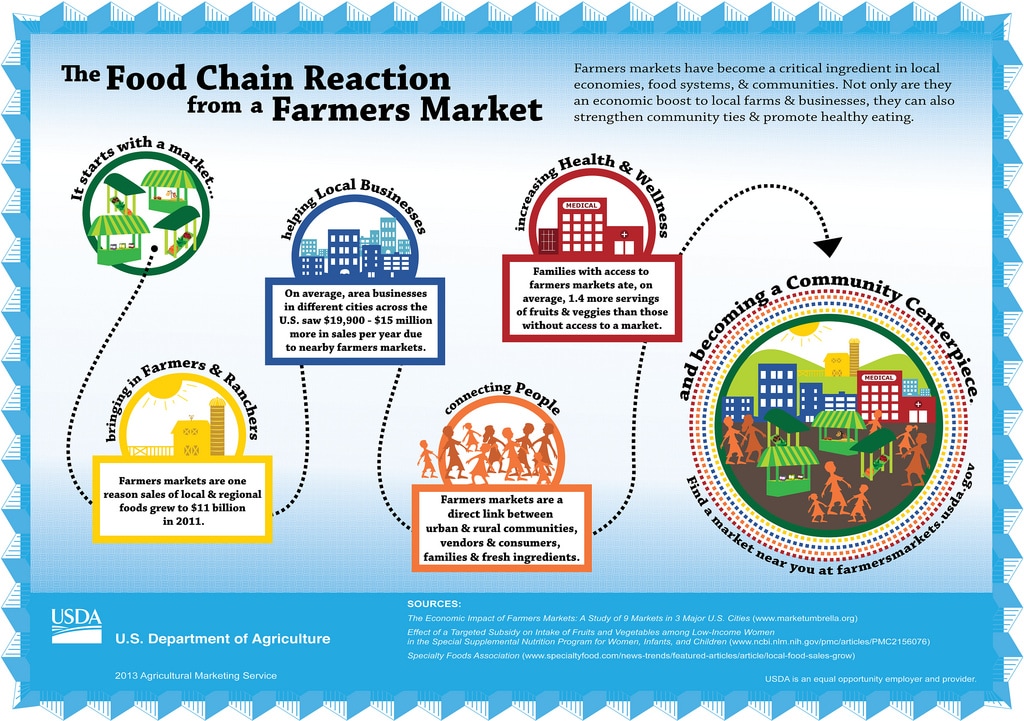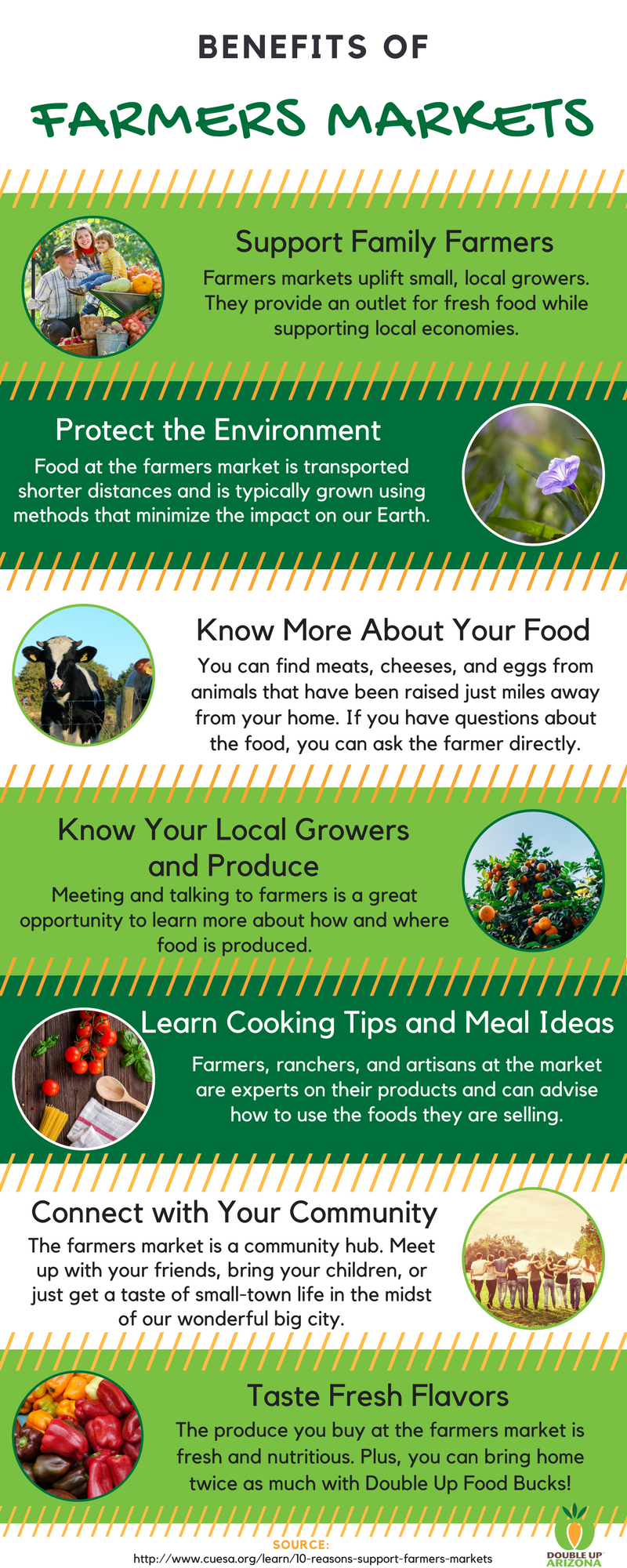|
Last week, we celebrated an exciting launch of a new farmers market in El Oso Park in Maryvale, a community located in west Phoenix that has low access to quality food sources. We’re thrilled to work with local organizations and growers to help increase access to healthy food for this community, and hope this effort can serve as an example of the benefits of farmers markets in food insecure areas across the state. A recent Feeding America study found that 15.8 percent of Arizonans are food insecure. Urban sprawl, lack of grocery stores and inadequate public transportation leave many who reside in food desert communities with the task of traveling though the extreme Arizona heat for basic needs and groceries. Many rural communities face similar challenges. Farmers markets can help bridge this gap and increase access to healthier food in every community. Farmers markets provide a space to purchase fresh, affordable products that reflect the diversity of a community. According to the USDA, families who have access to a farmers market eat on average 1.4 more servings of fruits and vegetables than those who do not live near a market. Furthermore, the very nature of the buying and selling process creates a channel for connection between residents, growers and local organizations, transforming farmers markets from just another place to buy food to community hubs. The markets also represent an important strategy in the efforts to bring affordable, healthy food options into food insecure communities. Still, many who reside in these communities are hesitant to go to the farmers market. For some, this is because of common misconceptions around prices and patronage of farmers market. A report, released by the Project for Public Spaces sheds light on what residents are looking for in a market — and it may have even busted a few stereotypes along the way. For the study, the team examined eight markets across the United States that served low-to-middle income communities with higher than average ethnic and minority compositions. Here are some of the misconceptions the study helped to correct: 1. Too expensive? Think again. Among the survey sample, almost 60 percent of farmers market shoppers in low-income neighborhoods believed their market had better prices than the grocery store. Additionally, it is important to take into consideration the price you pay for quality produce at a grocery store or at a farmers market. Even if you have the opportunity to buy organic produce at the grocery store, in many cases those fruits and veggies have been on the grocery fruit stand for a longer time than produce at a farmers market, which is typically picked within days of sale. Finally, programs like Double Up Food Bucks work with SNAP recipients to help them maximize their dollars when buying locally grown market produce. For every dollar spent with a SNAP Quest card, Double Up Food Bucks matches customers with another dollar to spend on Arizona-grown produce, up to $20 per day. 2. Location, Location, Location The report also found that if market organizers want underserved neighbors to come, information is key. Letting residents know when and where the market operates is crucial, researchers found, as a high percentage of those surveyed who do not shop at farmers markets cited the lack of scheduling information as a main reason they opt for the grocery store. There are numerous farmers markets situated around the state that are open through the week, and multiple markets that accept Double Up Food Bucks. 3. Cultural Barriers Some shoppers who go to farmers markets in hopes of finding culturally appropriate foods are left needing to look elsewhere. However, farmers markets present communities a unique opportunity for patrons to voice their needs. Markets and growers that spend time getting to know their most frequent shoppers, as well as understanding the community they are serving, have the opportunity to make more money, expand production, diversify their products, and develop a more stable consumer base. Knowing your shoppers creates a genuine relationship that empowers every branch of the local food system and community. Farmers markets are wonderful public gathering spaces that put an emphasis on community health. They make it easier for people to make better dietary choices, while simultaneously bringing neighbors together to form the strong, supportive social networks that are critical to success in leading healthy lifestyles in the long term. We hope to see you at a farmers market this summer, and all year long. Check out the infographic below to learn more about how farmers markets can benefit every community.
A special thanks to Mercy Care Plan, Mercy Maricopa Integrated Care, Pinnacle Prevention, City of Phoenix Parks and Recreation, Recyclebank, Councilman Daniel Valenzuela, and Dee Logan for helping to make the El Oso farmers market possible!
0 Comments
Leave a Reply. |
Double Up!Keep up with the latest news about Double Up AZ, and learn how Double Up is changing lives in Arizona! Archives
April 2019
Categories
All
|
Location |
|




